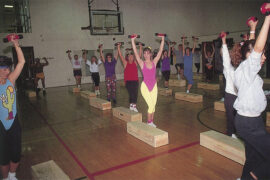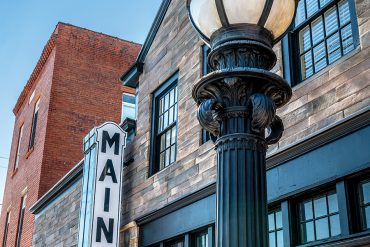By Jack Houvouras
HQ 32 | SUMMER 1998
There has been a great deal of talk in Huntington recently concerning the importance placed on athletics at Marshall University. It isn’t surprising that the football program, with its phenomenal success in the 1990s, has been the main focus of discussion. Some people in the community believe that too much of the university’s attention has been directed to athletic programs which, they assert, do nothing to enhance the image or educational opportunities of the school. They are wrong.
The first mistake most people make concerning the college educational experience is that it should only involve academic endeavors. However, equally important to the basic needs of most students are socialization, identity and sense of community. Athletics fulfill many of these needs. Not only that, athletic programs contribute millions of dollars to the local economy and provide the community with a sense of pride. The benefits of that alone are immeasurable.
There are an abundance of universities throughout the country that hold high academic standards while maintaining winning athletic programs. Notre Dame, Virginia Tech, North Carolina, Stanford, Syracuse, Tennessee, Auburn and Ole Miss are just a few that come to mind. Today, students considering college are presented with a variety of choices. For those interested in a purely academic setting, there are schools throughout the country that meet their needs. And for students seeking a quality education as well as a chance to interact with the community, schools like Notre Dame, North Carolina and, yes, Marshall University, await them.
Finally, it is clearly apparent that the success of Marshall University football in the 1990s has not been attained at the expense of the school as a whole. As the football program has grown, so too has the university. With a new $13 million fine arts center, $29 million library, $32 million med center, $5.5 million expansion to the South Charleston campus and $80 million invested in information technology, the university is clearly moving forward. This is not to say that athletics have inspired such growth, but rather that athletics have, in no way, impeded the university’s progress.





